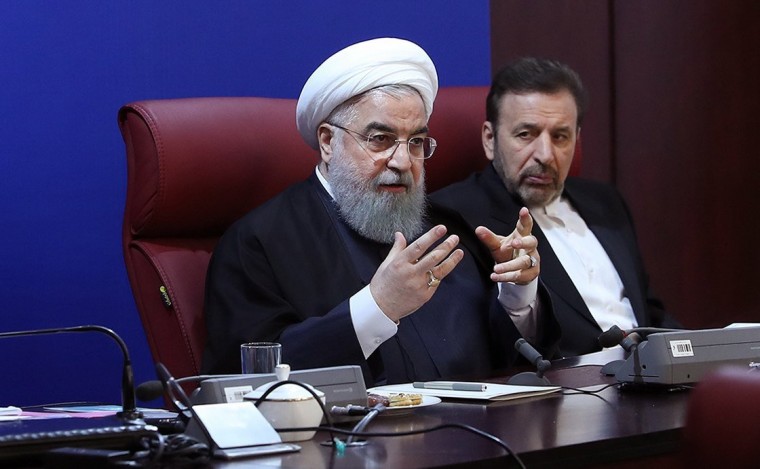LONDON — Protests that shook Iran were not just sparked by the economy, President Hassan Rouhani said on Monday, remarks suggesting the demonstrators were seeking to send a message to powerful conservatives opposed to his plans to expand individual freedoms at home and promote detente abroad.
The pragmatic cleric, who defeated anti-Western hardliners to win re-election last year, also called for the lifting of curbs on social media used by anti-government protesters in the most sustained challenge to hardline authorities since 2009.

"It would be a misrepresentation (of events) and also an insult to Iranian people to say they only had economic demands," Rouhani was quoted as saying by Tasnim news agency. "People had economic, political and social demands."
Iran's influential Revolutionary Guards said on Sunday the security forces had put an end to a week of unrest fomented by what it called foreign enemies.
The protests, which began over economic hardships suffered by the young and working class, spread to more than 80 cities and towns and resulted in 22 deaths and more than 1,000 arrests, according to Iranian officials.
Hamid Shahriari, the deputy head of the judiciary, said that all ringleaders of the protests had been identified and arrested, and they would be firmly punished and might face capital punishment.
Many of the protesters questioned Iran’s foreign policy in the Middle East, where it has intervened in Syria and Iraq in a battle for influence with rival Saudi Arabia.
The country’s financial support for Palestinians and the Lebanese Shiite group Hezbollah also angered many Iranians, who want their government to focus on domestic economic problems instead.
Rouhani won re-election last year by promising more jobs for Iran’s youth through more foreign investment, as well as more social justice, individual freedom and political tolerance — aims questioned by his main challenger in the contest.
Echoing some of his campaign rhetoric, Rouhani said on Monday people should be allowed to criticize all Iranian officials, with no exception.
"No one is innocent and people are allowed to criticize everyone"
Demonstrators initially vented their anger over high prices and alleged corruption, but the protests took on a rare political dimension, with a growing number of people calling on Supreme Leader Ayatollah Ali Khamenei to step down.
The supreme leader is commander-in-chief of the armed forces and appoints the heads of the judiciary. Key ministers are selected with his agreement and he has the ultimate say on Iran’s foreign policy. By comparison, the president has little power.
"No one is innocent and people are allowed to criticize everyone," Rouhani said.
Rouhani also dismissed calls from hardline clerics who had asked the government to permanently block access social media and messaging apps.
As protests have ebbed, the government has lifted restrictions it imposed on Instagram, one of the social media tools used to mobilize protesters. But access to a more widely used messaging app, Telegram, was still blocked. The government has said the restrictions would be temporary.
"People's access to social media should not permanently be restricted. We cannot be indifferent to people's life and business," Rouhani said.
State television showed live pictures of more pro-government rallies in several cities, including Sanandaj in western Iran, as marchers carried posters of Ayatollah Khamenei and chanted slogans in his support.